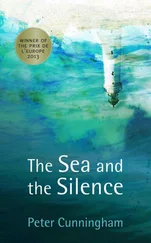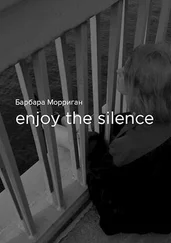J. Jones - The Silence
Здесь есть возможность читать онлайн «J. Jones - The Silence» весь текст электронной книги совершенно бесплатно (целиком полную версию без сокращений). В некоторых случаях можно слушать аудио, скачать через торрент в формате fb2 и присутствует краткое содержание. Жанр: Исторический детектив, на английском языке. Описание произведения, (предисловие) а так же отзывы посетителей доступны на портале библиотеки ЛибКат.
- Название:The Silence
- Автор:
- Жанр:
- Год:неизвестен
- ISBN:нет данных
- Рейтинг книги:5 / 5. Голосов: 1
-
Избранное:Добавить в избранное
- Отзывы:
-
Ваша оценка:
- 100
- 1
- 2
- 3
- 4
- 5
The Silence: краткое содержание, описание и аннотация
Предлагаем к чтению аннотацию, описание, краткое содержание или предисловие (зависит от того, что написал сам автор книги «The Silence»). Если вы не нашли необходимую информацию о книге — напишите в комментариях, мы постараемся отыскать её.
The Silence — читать онлайн бесплатно полную книгу (весь текст) целиком
Ниже представлен текст книги, разбитый по страницам. Система сохранения места последней прочитанной страницы, позволяет с удобством читать онлайн бесплатно книгу «The Silence», без необходимости каждый раз заново искать на чём Вы остановились. Поставьте закладку, и сможете в любой момент перейти на страницу, на которой закончили чтение.
Интервал:
Закладка:
There followed a momentary pause. ‘I don’t want to take up more of your valuable time, Advokat Werthen.’ Wittgenstein stood, smoothing down his trousers as he did so. ‘I’ll let you get on with it. I can pay a retainer now, or-’
‘That won’t be necessary, Herr Wittgenstein. We will talk about fees after I find your son. I will , however, need to speak to other members of the family and domestic staff.’
‘Certainly. Meier will direct you. The servant who showed you in. Knows his way about the house, does Meier. Been with us since we moved here from the Schwarzenbergplatz in ninety-one.’
Wittgenstein moved to the door and pressed a small ringer. The door soon opened, revealing the same liveried servant who had shown Werthen to the study.
‘Meier, please take our guest to Fraulein Mining. She should be in the conservatory now.’
Then to Werthen: ‘That is my oldest child, Hermine. She is the family brick, the one to go to in times of crisis. She can give you the lay of the land here. Tell you who’s who and what’s what, if that is any help. She can show you Hans’s room and all that. There’s Kurt as well. A year younger than Hans and of a more sensible nature. Then Rudi, a younger brother. But he’s a dreamer, like Hans. Wants to be an actor. He’ll be a fine director one day. And I do not mean of the theatrical sort. I don’t know if they can help you in your inquiries. They tell their mother they know nothing of Hans’s whereabouts.’
‘Thank you, Herr Wittgenstein.’ Werthen was about to follow Meier out of the room, but decided on one final attempt to get through to the man.
‘You’ll pardon me for saying so, but you do not seem troubled by this disappearance,’ he said.
Wittgenstein, about to sit again at his desk, seemed surprised by the statement, then irritated.
‘Troubled? Why ever should I be? Young scoundrel’s probably off with a pretty girl, like I said.’
‘There have been no ransom demands? No communication?’
Wittgenstein’s face reddened. ‘Why should there be?’ He was like a patient diagnosed with cancer yet unwilling to take it seriously.
‘You keep mentioning some pretty young thing. Was Hans having an affair?’
‘I have no idea. That is Hans’s business. He is, after all, a young man. And please do not ask Mining such a question.’
‘This may not be the appropriate time for decorum, sir. Your son’s been missing for over a week.’
‘I really must attend to certain matters, Advokat. If you will excuse me. Meier, Advokat Werthen wishes to see my daughter now.’
Four
Meier led Werthen on an abbreviated tour of the house as they made their way back downstairs and past the famed Musiksaal, where the Wittgensteins held their fabled musical evenings, with everyone from Brahms to Mahler performing for the family and guests. Werthen caught a glimpse of it as they passed, the walls covered in hunting tapestries, the floor an intricate parquet pattern, two Bosendorfer grand pianos situated with keyboard facing keyboard in the center of the room, a large bust of Beethoven standing at one end. But Meier cleared his throat at Werthen playing tourist, and they continued via a large sitting room, its walls covered in paintings from Rudolf von Alt, Segantini, and more from Klimt.
By the time they reached the conservatory, Werthen felt overwhelmed by material wealth. Meier remained quiet throughout their perambulation, and once they arrived at the door to the conservatory, he was obviously prepared to leave Werthen to his business.
‘You are well acquainted with young Hans Wittgenstein, I assume?’ Werthen asked as the servant was about to leave.
Meier cast Werthen a questioning look. ‘I have been with the family for quite some time.’ He was a lean, slight man whose thin calves looked faintly ridiculous in the sheer white stockings he wore.
‘That is not what I asked,’ Werthen said.
‘Yes, I have known Herr Hans since he was a boy.’ But he offered no more.
‘Let us understand one another,’ Werthen said. ‘I have been employed by Herr Wittgenstein to find his oldest son. You can confide in me. The more information I have, the more effective I will be.’
Still the servant remained silent.
‘Is he a happy young man?’ Werthen asked.
A slight trace of amusement passed over Meier’s wax-like face.
‘You find the question somehow humorous?’
‘Happiness is not the primary goal of the Wittgensteins,’ Meier responded in a monotone. ‘But if you are wondering if the young man has been exceedingly despondent of late, I am clearly not the one to ask. I am a servant here, not a familiar. Decorum is exercised. Fraulein Hermine can, I am sure, better aid you in your inquiries.’
With that, Meier abruptly turned and left Werthen to make his own way into the conservatory.
Which he did, meandering through rows of potted palms and giant banana and elephant ear plants, making his way toward brighter light. Eventually he saw a young woman standing at a table under an atrium light well, the stained glass above her an elegant Jugendstil design of geometric shapes and swirls. The table was covered in cut flowers, and the young lady was busy making arrangements of them. She was dressed in a white blouse with a high neck, and a green tweed skirt that reached to the floor. Her brown hair was worn on top of her head.
‘Fraulein Wittgenstein?’ Werthen nodded at her as he approached.
She looked up from the red and white carnations she was arranging and smiled with quiet grace.
‘You’ll be the detective Klimt sent.’
‘Private inquiries agent,’ he said.
‘Comes to the same thing, doesn’t it?’ Another winning smile, but with an edge. Her greenish-blue eyes were flecked with gold.
Werthen did not feel like quibbling. It seemed that even when the Wittgensteins were being friendly, they were difficult.
‘What do you think happened to Hans?’
This abrupt shift did not throw her. She continued clipping flower stems with a pair of ivory-handled secateurs.
‘I think he just needs a little vacation.’
‘He couldn’t wait for August?’
She shook her head, as if gently reprimanding his levity. ‘Hans is a sensitive young man.’
‘Your father mentioned his dreams of a musical career. Might that figure in his disappearance?’
‘He has not disappeared. He is somewhere , we just do not know where.’
‘He said nothing to his other siblings?’
She shook her head, more adamantly this time, and resumed clipping stems.
‘Do you know any of his friends?’ Werthen asked finally.
‘I can’t say I do, Advokat Werthen. If you must know, Hans and I are not all that close. In age, yes, but not in temperament.’ Another shake of the head. ‘I am, in fact, closer to the second group.’
‘How do you mean?’
‘Sorry. Family nomenclature. Six of us children were born between 1874 and 1882. Myself, then Hans — actually, Dora next, but she died at birth — Kurt, Lenka — that’s Helene — Rudi, and Gretl. Six years later Pauli was born, and then the next year, Luki — little Ludwig, the baby of the family. The little ones and I are very close.’
‘I see.’ But he did not at all. Or if it had any bearing on the whereabouts of Hans Wittgenstein. No nickname for him, Werthen noted. Or for brother Kurt.
‘Is Hans close with his brothers? Perhaps he mentioned something, anything, that might give us a lead?’
‘You’re free to ask them, of course. We all live at home still. None of us has taken the dreaded marital step. But I doubt it will do you any good. No one seems to know where he is.’
She finished the arrangement of red and white carnations, laid down the secateurs, and took off her white gardening gloves.
Читать дальшеИнтервал:
Закладка:
Похожие книги на «The Silence»
Представляем Вашему вниманию похожие книги на «The Silence» списком для выбора. Мы отобрали схожую по названию и смыслу литературу в надежде предоставить читателям больше вариантов отыскать новые, интересные, ещё непрочитанные произведения.
Обсуждение, отзывы о книге «The Silence» и просто собственные мнения читателей. Оставьте ваши комментарии, напишите, что Вы думаете о произведении, его смысле или главных героях. Укажите что конкретно понравилось, а что нет, и почему Вы так считаете.











